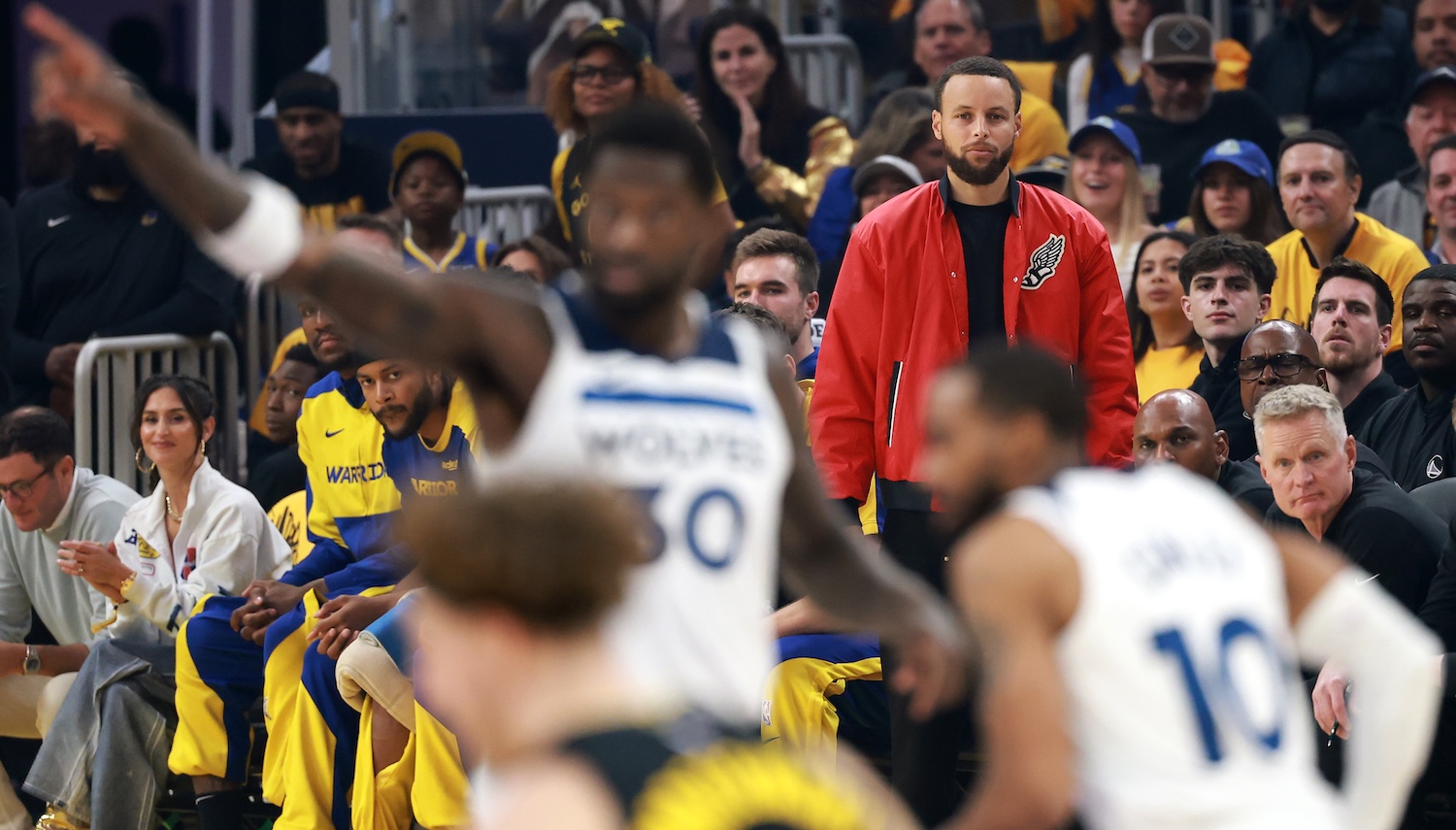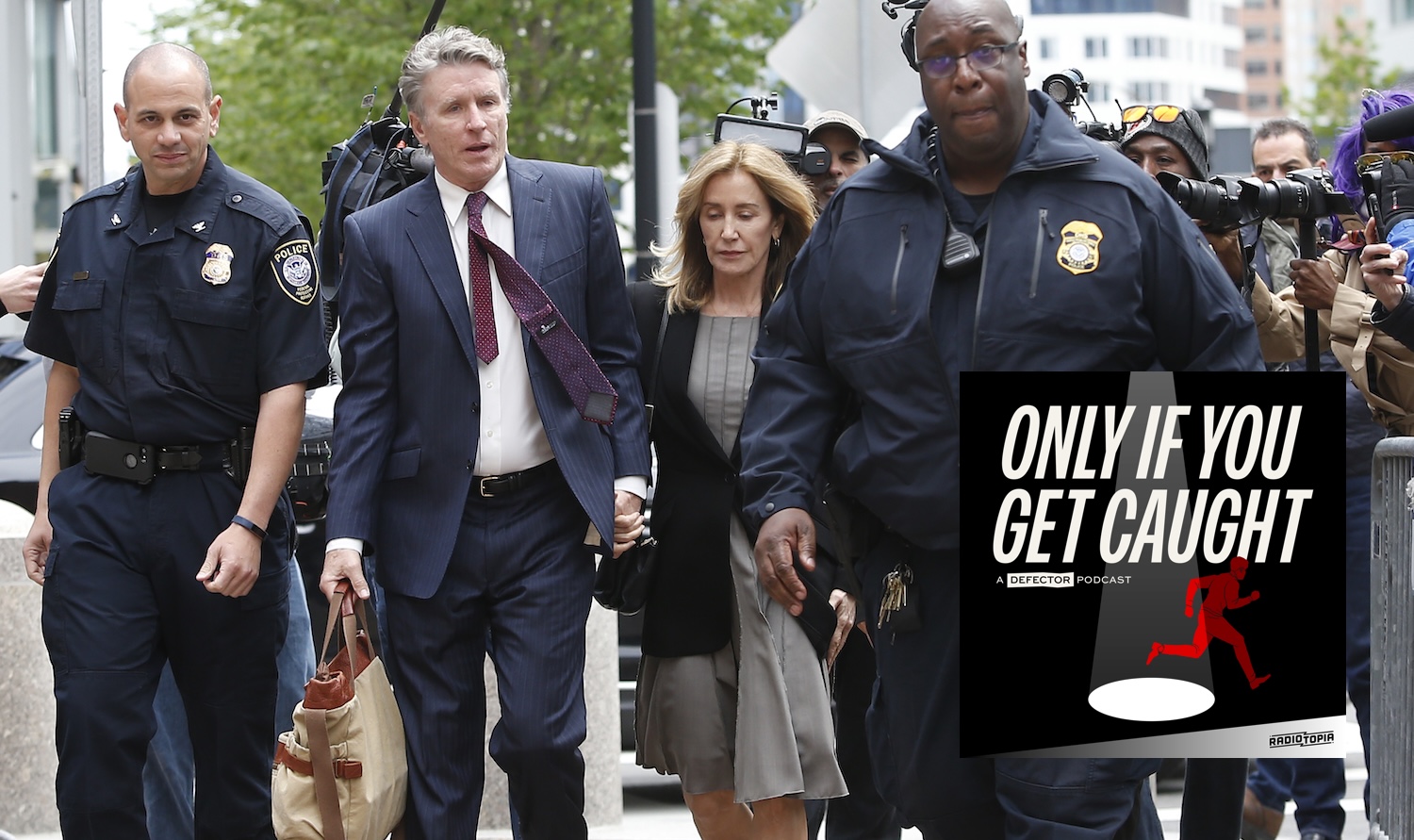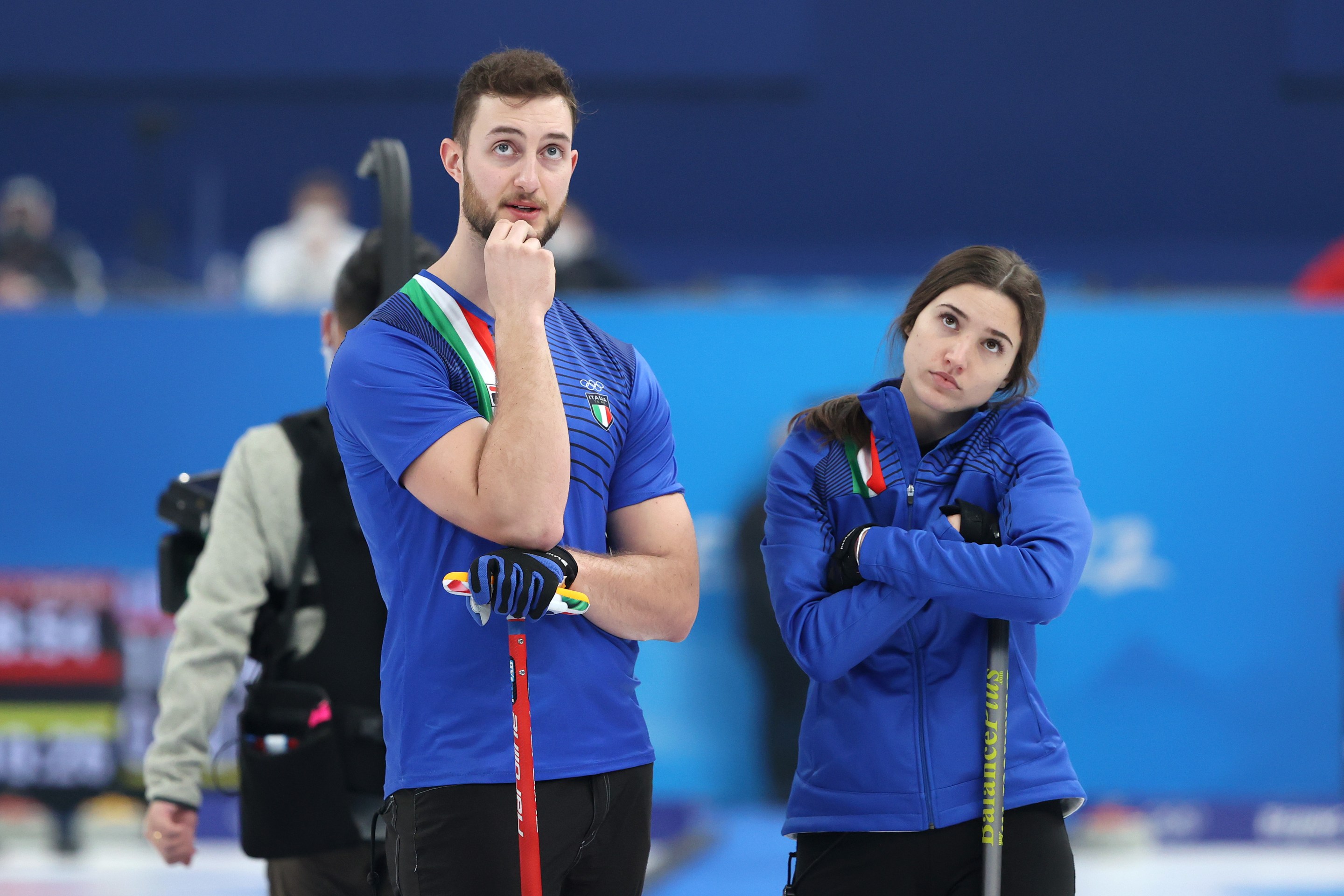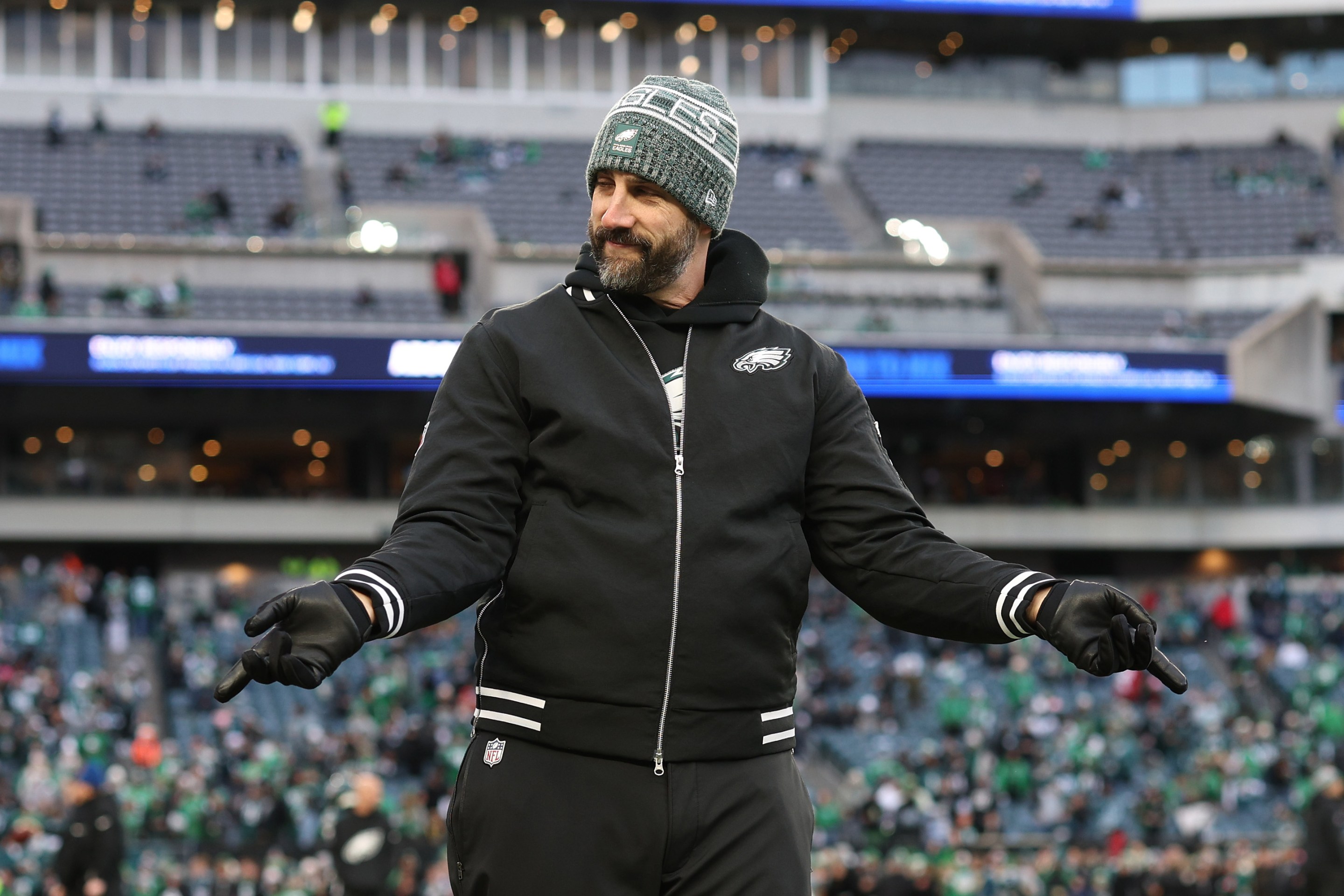The Minnesota Timberwolves closed out the Golden State Warriors with ease on Wednesday night, winning Game 5 in the same smothering fashion they'd won the previous three games. The box score doesn't tell the story, nor do the highlights, save for one little Easter egg.
Late in the second quarter, Julius Randle nailed a three from the top of the key to give his team the double-digit lead they would hold onto until the game was well in hand. Randle sashayed back on defense with the ease of a man who is assured of his good fortune, hands flapping, beyond comfortable. The broadcast then cut to a shot of Steph Curry, who appeared in a daze, staring unfocused through the court with his lips parted, shaking his head in disbelief. His season, another great year even by his standards, one of the last ones he might ever have, was over. The NBA's greatest basketball comedian couldn't do anything but watch the grim drama wind to its concluding act.
The end of any all-time great player's career is a strange, sad thing. Nobody ever gets to go out on their own terms. See: Tim Duncan getting mashed to hell by Steven Adams in 2016 two short years after winning the title; Michael Jordan raging against the concept of mortality for the Washington Wizards; Kevin Garnett hanging out as baby Karl-Anthony Towns's cranky sitter on a disgusting Wolves team. Nobody can be great forever, but at the same time, few to no competitors serious enough to become all-timers will quit with gas in the tank.
The bummer of this Steph Curry season, though, is not that he doesn't have it anymore, but that he does. Old as he is, Golden State did not get smoked in the second round because their best player wasn't good enough. They shuffled off without a fight because he got hurt and the team around him wasn't up for it.
Curry is 37, and he has yet to meaningfully tip toward obsolescence. The stats say it was basically a career-average season for him: 62 percent true shooting on 30 percent usage, 40 percent from three on a crazy volume, and graceful declines in both his steal and turnover rates. He spent the segment of the season prior to the Jimmy Butler trade in purgatory, zipping around, hitting difficult shots, and sighing through postgame interviews about annoying losses. The experience of watching Curry by, say, January was a frustrating one. He would either cook his man or draw a double team, kicking off a pass-pass sequence that in better days would have ended with Klay Thompson cashing out on an open three but now farted out into Andrew Wiggins pump-faking and traveling off a closeout, or Moses Moody looking at the rim in fear and then dumping it back. "As the kids say, we're very mid right now," he said at the end of 2024.
Still, there was magic. Curry turned Thompson's first game back as a visitor from a memorial into a ritual sacrifice, as he scored 12 points in the final three minutes to seal a late comeback win. Two days earlier, he'd dropped 36 on the Oklahoma City Thunder and dealt them their only double-digit home loss until they stopped trying in March. But after a hot start, the team began eroding around him, with Wiggins's confidence totally cooked, Brandin Podziemski's too high, and De'Anthony Melton tearing his ACL in the Thompson revenge game. Draymond Green only plays offense now on accident.
Meanwhile, the game was changing. Everything was getting faster, defenses were getting smarter, and teams were playing deeper rotations of younger players. A new class of teams was rising in the West, prepared to shrug off the old orthodoxy. The nature of the Warriors' self-professed mid-ness was their lack of pop. They were smart, coordinated, stocked with good defenders, and almost always undersized and athleticism-deficient.
For all the credit Golden State gets for popularizing the three-pointer as the primary weapon for NBA offenses, no team has ever played like the Warriors. This is all because of Steph Curry. You can recreate the crude math of hoisting a bunch of threes, you can steal schemes and plays from the Warriors, you can even construct your own Draymond, but there is nothing replicable about the way Curry hoops. If you buy the theory that Curry is one of the most influential players of his generation—I watched Anthony Edwards shoot a bunch of halfcourt shots while warming up for Game 4, yelping "Wardell!", Steph's first name, with each one—it is remarkable that even a decade after his first championship, there's still nobody like him.
That no player has ever shot like him, quick and pure and totally indifferent to the contest, is obvious, but a subtle thing that makes Curry special is his manipulation of space. He is the best off-ball mover I've ever seen, and even at 37 probably still the best in the league, even though the sorts of spaces that defenses cede are totally different than they were 10 years ago; I would even argue that the new spatiality of basketball is downstream of Curry's influence. He demands constant attention, which he weaponizes against a defense like an autoimmune disease, by understanding exactly what makes five guys panic and how they will react to his moves.
That is rude, ingenious, and above all funny. An important thing about Steph Curry: He is foremost a comedian. His possessions have the structure of a joke, with setups, misdirections, and punchlines. As he explained in Court of Gold, Netflix's Olympic basketball documentary, the sense of freedom he plays with is only possible because he's made his peace with losing. He seems like someone who loves winning more than he hates losing, the opposite of how Michael Jordan and his sour peers ordered things and probably different from how his eternal foil, LeBron James, relates to losing. That manifests on the court as a sort of lightness. He truly plays basketball. It's as if he's winking at the camera, banana peel in hand, when Dillon Brooks gets switched onto him or he takes a half-beat to hold his form after a particularly audacious three. He's letting you in on the joke.
This beautiful arrogance, more than the Patagonia vests, more than the WAAAARRRRIIOOOOORS chant, more than the Draymond Green Innocence Project, explains why Warriors fans are, broadly speaking, like that. If you'd watched a tiny guy with shredded ankles remake his body, win four titles through pure skill, and take on the hardest challenges in basketball with unbridled glee, why wouldn't some of that rub off on you? Why wouldn't you welcome it?
The 2022 title was a total fairytale ending to the Thompson-Green-Curry Warriors, the best possible coda that group could have hoped for, especially after everything Klay went through, and yet Warriors fans were still holding out hope for another one. It's hard to blame them, or even to think they were wrong to do so. Did you not see Curry, 15 years older than Amen Thompson, outrun and outwork the supposedly most athletic player in the league on his own home court in a Game 7, just a couple weeks ago? How could you watch something like that and accept something as cold as a rational relationship to the game?
At some point, the show will end, and the curtain will fall. When it comes, it might look like that moment from Game 5, with the typically ebullient Curry reduced to resigned disbelief. But it hasn't come yet, even if Curry's tweaked hamstring cut short what could have been one of his last real runs. The Warriors probably were not going to win the title this year no matter what he did, especially with how tiny and flawed their frontcourt was, and how lifeless their offense got once Jimmy Butler showed signs of late-onset Ben Simmons disease around the basket. Titles are great, but people win them all the time. Nobody tells a joke like Steph Curry, so laugh while you can.






